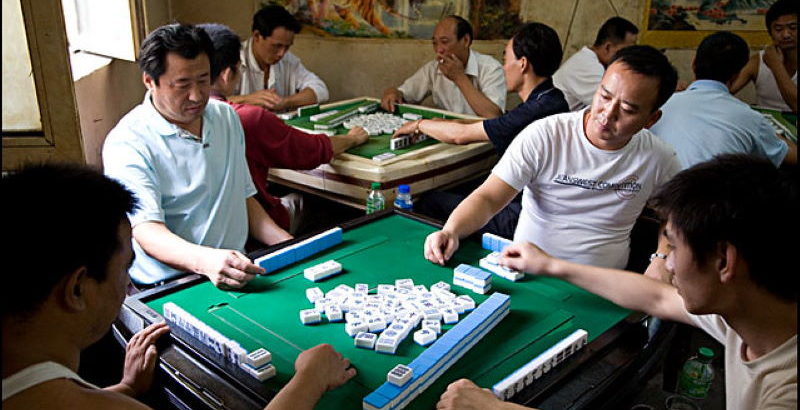Mahjong is a big part of common culture in China. It is one of the most common social activities and pervades many aspects of social and family life.
Chinese Mahjong is a deeply rooted social and cultural activity that has endured for centuries. Its influence on social and family life, as well as its reflection of Chinese values and philosophy, make it a cherished and enduring aspect of Chinese culture. The game’s popularity shows no signs of waning, ensuring that Mahjong will continue to be a vital part of Chinese society for generations to come.
Examples of the Popularity of Mahjong
- Most people have a Mahjong set at home
- Most Chinese restaurants also offer Mahjong playing set for their customers.
- During Chinese weddings, guests will often play Mahjong while waiting for events to progress.
- A count-down Mahjong before the Chinese New Year or the New Year is a typical practice for many Hong Kong families.
- The elderly are encouraged to play Mahjong as brain exercise.
- It is said that to invite a person to a Mahjong game, is to befriend the person!
But the popularity of Mahjong can also bring problems
Officially, casinos are illegal in Hong Kong. However, there are legal Mahjong schools, where gamblers can play Mahjong. As a result, addiction to Mahjong is a common type of problem gambling in China.
Mahjong is has also been used as a favourite medium for bribery – the person giving the bribe will intentionally lose large sums of money to the person being bribed.
Chinese Mahjong: A Deeply Rooted Social and Cultural Activity
Chinese Mahjong, a popular tile-based game that originated in China during the Qing dynasty, has long been a significant aspect of Chinese culture. Played by millions of people, it is considered both a leisure activity and a social bonding experience. Mahjong is not just a game; it represents the deep-rooted traditions and values that continue to shape Chinese society. This article will explore the ways in which Mahjong permeates Chinese social and family life, highlighting its cultural importance and enduring appeal.
Historical Background
The origins of Mahjong can be traced back to the late 19th century in China, with some historians even suggesting that the game has roots in the ancient Chinese game of “yèzi” or “leaves.” Mahjong evolved over time, incorporating elements from other games such as chess, dominos, and card games. The game as we know it today was popularized during the early 20th century and has since spread across the world, with various regional adaptations and rule sets emerging.
Social Significance
In China, Mahjong is more than just a game; it is an integral part of social life, providing a platform for people to interact, bond, and form connections. Friends and family members gather around the Mahjong table to relax, chat, and spend quality time together. Mahjong is often played during family gatherings, festivals, and other special occasions, serving as a means of bringing people closer and fostering a sense of belonging.
Mahjong parlors, found in both urban and rural areas, are also common in China, where players can engage in the game and socialize with others. In these settings, the game provides an opportunity for individuals to network, discuss business, and share news, making it an essential aspect of everyday life.
Cultural Impact
Mahjong is deeply ingrained in Chinese culture, with its symbolism and design reflecting various aspects of Chinese philosophy and mythology. The game’s tiles are adorned with intricate designs representing different elements such as the four seasons, the four cardinal directions, and the five elements (wood, fire, earth, metal, and water). These designs serve as reminders of the game’s cultural roots and its connection to Chinese history.
Furthermore, Mahjong embodies the Confucian principles of harmony, balance, and order. The objective of the game is to form a winning hand consisting of sets of tiles that achieve balance and harmony. This emphasis on equilibrium mirrors the broader Chinese cultural values of harmony and unity.
Influence on Family Life
Mahjong has a profound impact on family life in China. The game is often used as a way to strengthen familial bonds and pass on cultural traditions to younger generations. Parents and grandparents teach their children the rules and strategies of the game, ensuring that the love for Mahjong endures through the generations. The game also serves as an important intergenerational activity, allowing family members of all ages to connect and communicate.

